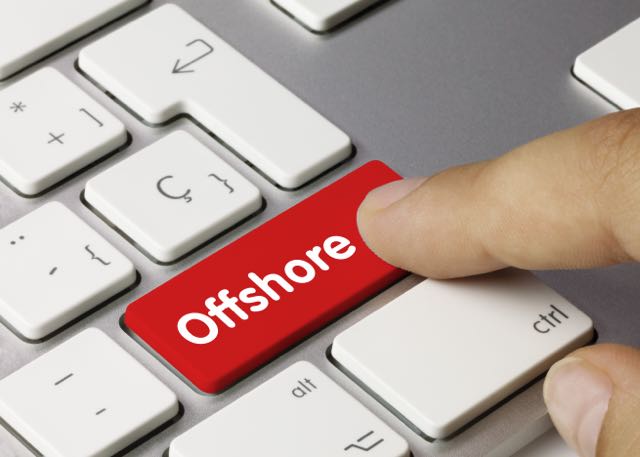Offshore Company Formation: Essential Actions for International Growth
Offshore Company Formation: Essential Actions for International Growth
Blog Article
Approaches for Cost-Effective Offshore Firm Development
When considering offshore business development, the mission for cost-effectiveness becomes a vital concern for businesses looking for to increase their operations globally. In a landscape where financial carefulness preponderates, the strategies employed in structuring overseas entities can make all the distinction in achieving economic effectiveness and functional success. From navigating the complexities of jurisdiction choice to applying tax-efficient frameworks, the journey in the direction of developing an overseas existence is swarming with possibilities and obstacles. By exploring nuanced approaches that blend legal compliance, financial optimization, and technological improvements, companies can embark on a path in the direction of overseas firm formation that is both financially prudent and tactically sound.
Selecting the Right Jurisdiction
When developing an overseas business, picking the proper territory is an essential choice that can dramatically affect the success and cost-effectiveness of the formation process. The jurisdiction chosen will establish the regulative framework within which the firm runs, impacting taxes, reporting needs, privacy laws, and general organization flexibility.
When choosing a jurisdiction for your offshore business, several variables have to be taken into consideration to ensure the choice aligns with your critical goals. One vital aspect is the tax routine of the jurisdiction, as it can have a significant influence on the firm's profitability. In addition, the degree of governing compliance called for, the financial and political stability of the territory, and the ease of working must all be reviewed.

Additionally, the track record of the jurisdiction in the worldwide service community is vital, as it can affect the understanding of your firm by clients, partners, and banks - offshore company formation. By carefully analyzing these factors and seeking professional suggestions, you can select the best jurisdiction for your overseas business that maximizes cost-effectiveness and sustains your organization objectives

Structuring Your Firm Successfully
To make sure ideal performance in structuring your offshore business, meticulous focus needs to be provided to the organizational structure. The primary step is to specify the company's ownership framework clearly. This consists of determining the police officers, shareholders, and supervisors, along with their duties and duties. By establishing a transparent ownership framework, you can make certain smooth decision-making procedures and clear lines of authority within the business.
Following, it is necessary to take into consideration the tax obligation ramifications of the chosen structure. Various territories supply varying tax obligation benefits and rewards for overseas firms. By carefully assessing the tax legislations and regulations of the selected territory, you can enhance your firm's tax obligation effectiveness and lessen unnecessary expenses.
Additionally, keeping appropriate documents and records is important for the reliable structuring of your offshore business. By maintaining exact and updated records of monetary transactions, corporate decisions, and compliance files, you can make sure transparency and accountability within the company. This not only assists in smooth procedures yet likewise assists in demonstrating compliance with regulative needs.
Leveraging Modern Technology for Savings
Effective structuring of your overseas business not only pivots on precise focus to organizational frameworks however also on leveraging innovation for savings. One means to take advantage of technology for savings in overseas company formation is by using cloud-based solutions for data storage and partnership. By incorporating technology strategically into your overseas company formation process, you can achieve substantial cost savings while boosting operational efficiency.
Decreasing Tax Obligation Responsibilities
Making use of critical tax planning techniques useful reference can successfully reduce the economic burden of tax obligation obligations for overseas firms. One of one of the most typical methods for lessening tax obligations is with profit shifting. By dispersing profits to entities in low-tax territories, overseas companies can lawfully lower their general tax responsibilities. Additionally, making use of tax incentives and exceptions offered by the jurisdiction where the overseas business is signed up can result in significant savings.
One more strategy to minimizing tax obligation responsibilities is by structuring the offshore firm in a tax-efficient way - offshore company formation. This includes very carefully creating the possession and operational structure to enhance tax obligation benefits. Setting up a holding business in a jurisdiction with desirable tax laws can assist consolidate earnings and decrease tax exposure.
Additionally, remaining updated on international tax policies and the original source conformity demands is important for reducing tax obligation responsibilities. By making sure rigorous adherence to tax obligation legislations and regulations, overseas business can stay clear of expensive charges and tax conflicts. Seeking expert recommendations from tax obligation experts or legal specialists concentrated on worldwide tax issues can also offer important understandings into efficient tax obligation preparation techniques.
Ensuring Conformity and Danger Reduction
Executing durable conformity actions is essential for offshore companies to alleviate threats and preserve regulative adherence. Offshore territories frequently encounter enhanced scrutiny as a result of concerns regarding cash laundering, tax evasion, and other financial criminal offenses. To ensure conformity and mitigate risks, overseas companies must carry out comprehensive due diligence on clients and business partners to avoid participation in immoral tasks. In addition, carrying out Know Your Consumer (KYC) and Anti-Money Laundering (AML) procedures can assist validate the authenticity of deals and safeguard the company's credibility. Routine audits and evaluations of monetary records are vital to identify any irregularities or non-compliance concerns immediately.
Moreover, remaining abreast of altering policies and lawful needs is crucial for overseas business to adjust their conformity practices appropriately. Engaging lawful specialists or conformity experts can give important advice on browsing intricate regulative landscapes and making certain adherence to worldwide requirements. By prioritizing conformity and danger reduction, offshore firms can enhance openness, build trust fund with stakeholders, and protect their from this source operations from prospective legal effects.
Final Thought

Using strategic tax planning strategies can successfully decrease the economic worry of tax obligation liabilities for overseas companies. By distributing revenues to entities in low-tax jurisdictions, offshore business can legitimately lower their general tax obligation obligations. Furthermore, taking advantage of tax rewards and exemptions supplied by the jurisdiction where the offshore business is signed up can result in considerable cost savings.
By guaranteeing stringent adherence to tax obligation laws and guidelines, offshore companies can stay clear of costly penalties and tax obligation conflicts.In final thought, economical offshore company formation needs careful consideration of jurisdiction, effective structuring, innovation utilization, tax minimization, and compliance.
Report this page